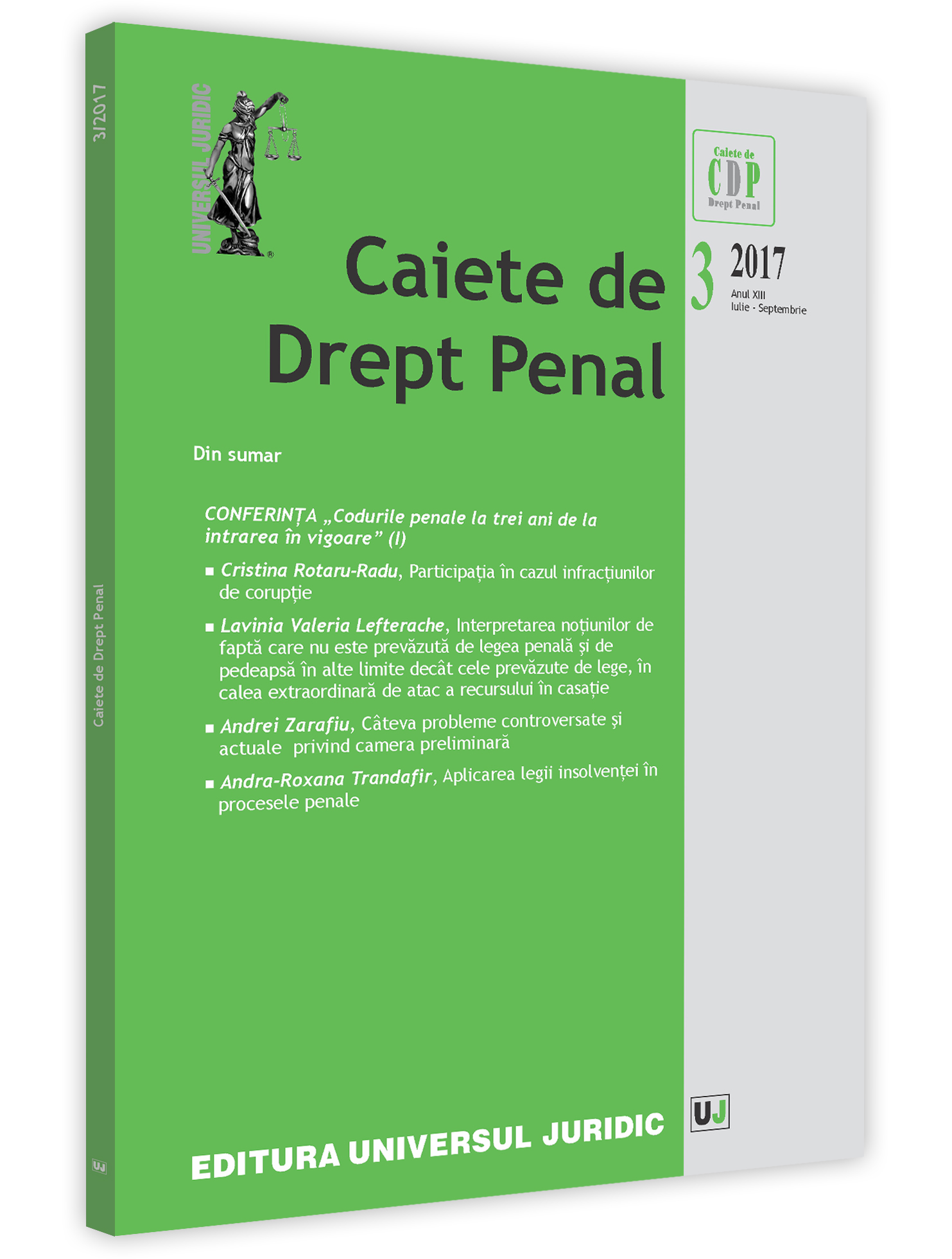Participaţia în cazul infracţiunilor de corupţie
Participation in corruption offences
Author(s): Rotaru-Radu CristinaSubject(s): Law, Constitution, Jurisprudence
Published by: Universul Juridic
Keywords: bribery; receiving bribe; giving bribe; criminal participation; aiding and abetting; criminal intent; concurrent offences; special provision;
Summary/Abstract: From a theoretical standpoint, there is no apparent controversy regarding participation in corruption offences. Legal doctrine states that participation is possible in all of its forms: co-authorship, abetment, complicity. However, seemingly simple questions have given rise to discussions and various solutions in judicial practice. Some of which are being examined in this study. One issue would be the legal qualification of the offence or offences committed by the intermediary to giving and to receiving bribe. Although the opinion in favour of concurrent offences for the intermediary is perfectly justifiable from a theoretical point of view, the author concludes that this solution is excessive. For this reason, she believes that the intermediary should be charged with a single offence, either complicity to giving bribe or complicity to receiving bribe, depending on the way the offence was committed, whether the help was provided to the briber or to the public servant. If there is no way of establishing for a fact that the intermediary initially aided the briber or the public servant, the proposed solution is charging the more serious offence, that of complicity to receiving the bribe. A second issue would be to assess whether the briber can be also charged with complicity or abetment to the offence committed by the public servant who asked for or accepted the proposal of receiving material gain. Finally, the solution of concurrent offences is rejected, as the legislator opted for creating particular offences. Another issue analysed in this study is the legal qualification of the deed of the person who facilitates the receiving of a sum of money by a public servant as bribery, he/she having previously accepted the proposal for receiving set money. Although there is the temptation of charging the complicity to receiving the bribe in this particular situation, the author finally reaches the conclusion that the actual handing of the money is a subsequent act, with no legal relevance lex lata. Lex ferenda, the author has some proposals for a possible sanctioning of these persons on another ground. The author then focuses on other difficult aspects regarding these offences: she argues, with actual examples, the way in which, under the current legislation, it is possible to charge a person with giving bribe although there are not enough elements for charging the act of receiving the bribe. Finally, the study analyses the possibility of charging the complicity or instigation to bribery in all situations in which the intermediary asks for a sum of money in the name of the public servant. After imagining various situations, the author reaches the conclusion that one cannot always be charged with these offences, and argues for other solutions. In conclusion, to reach some solutions of principle, the author argues that the `independence` of the offence of giving bribe in relation to the offence of receiving bribe must be established and takes on the responsibility of fulfilling the difficult task of proposing some criteria in order to do so.
Journal: Caiete de drept penal
- Issue Year: 2017
- Issue No: 03
- Page Range: 11-21
- Page Count: 11
- Language: Romanian
- Content File-PDF

